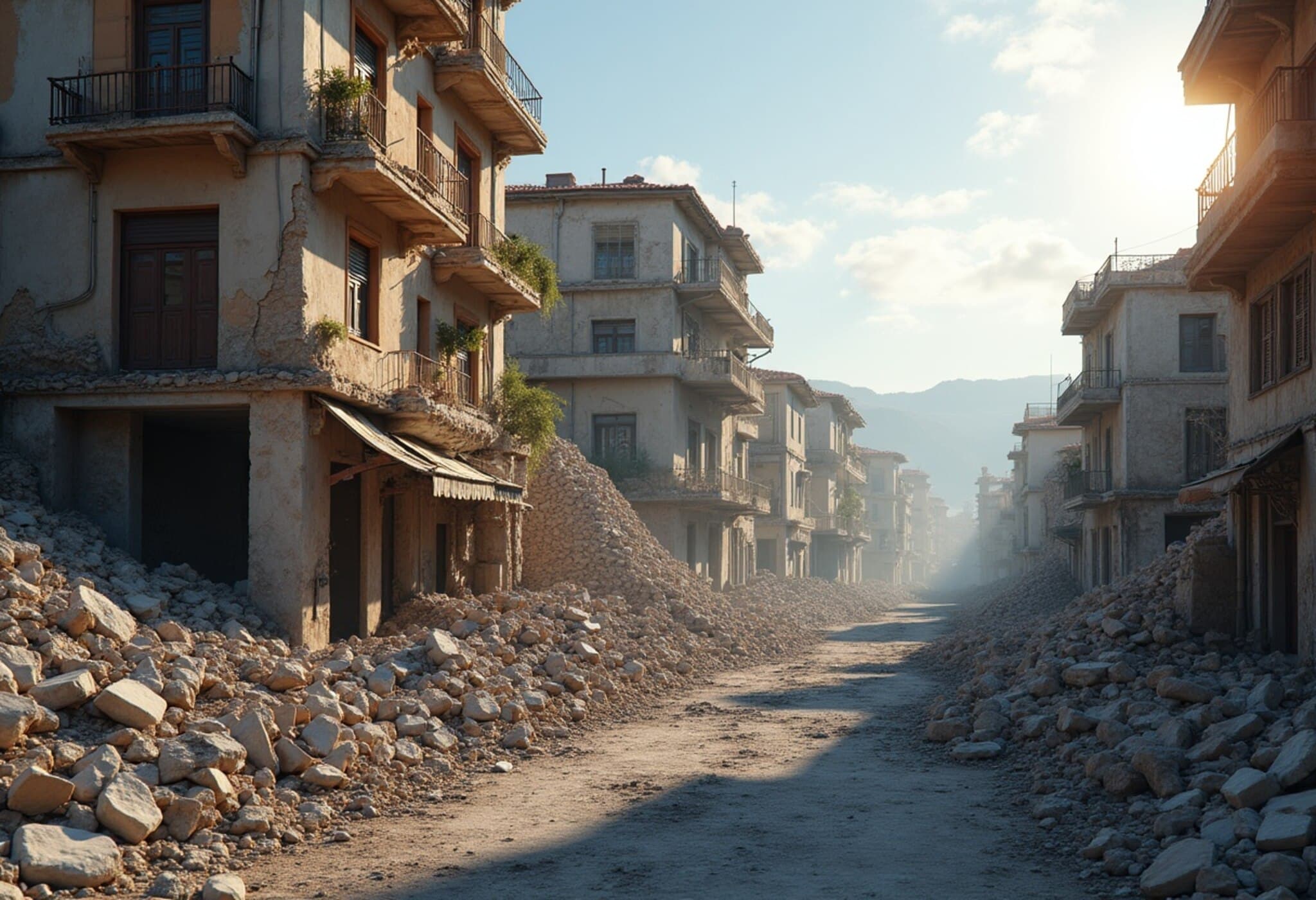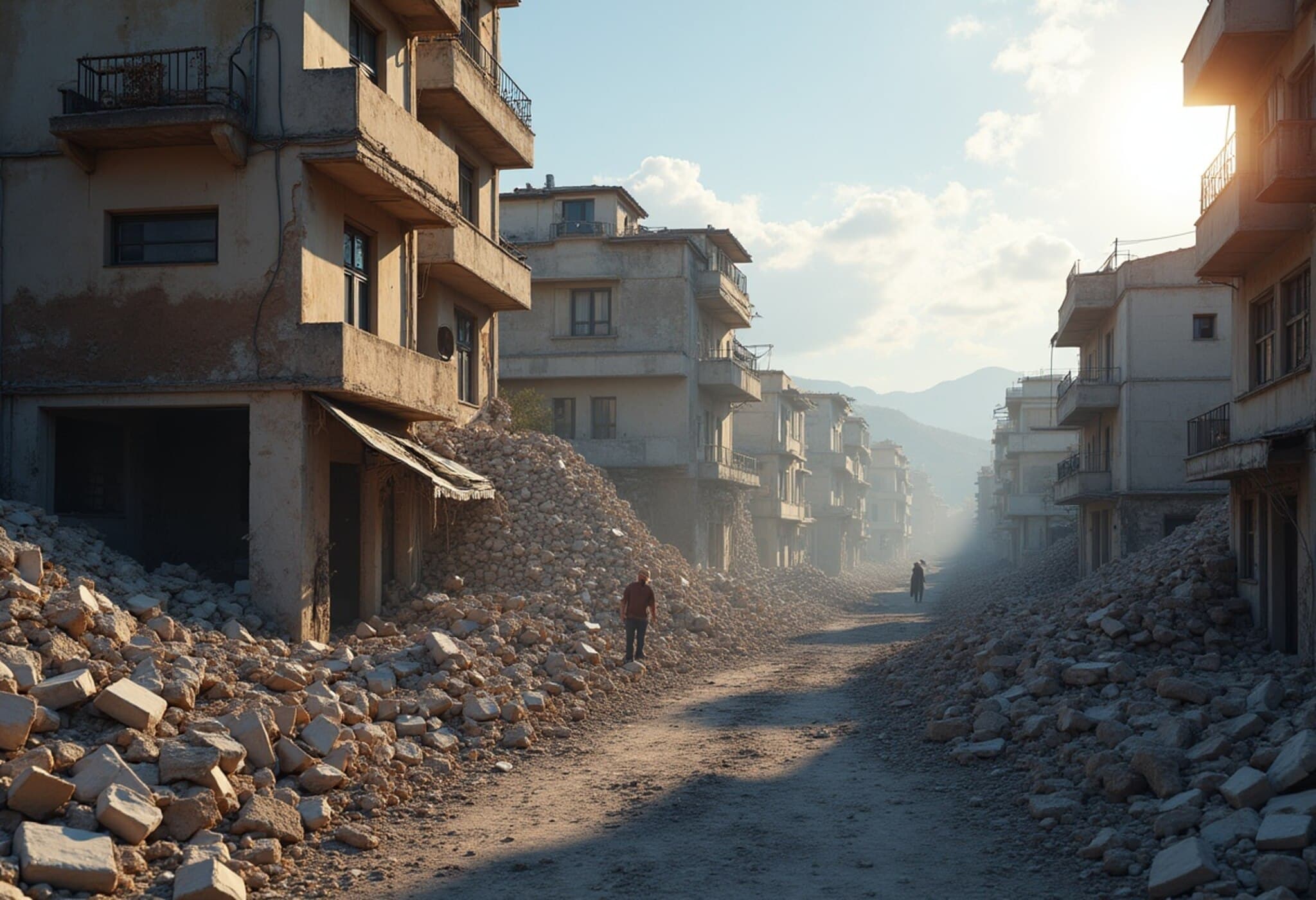Powerful 6.1 Magnitude Earthquake Shakes Western Turkey Near Istanbul
On the evening of August 10, 2025, a significant earthquake measuring 6.1 on the Richter scale rattled parts of western Turkey, with its epicenter in the Balıkesir province, located near the sprawling metropolis of Istanbul. According to the Disaster and Emergency Management Authority (AFAD), the tremor occurred at 7:53 pm local time (16:53 GMT) and was felt across neighboring provinces, though initial reports indicated no casualties or structural collapses.
Depth and Magnitude Confirmed by International Experts
AFAD noted that the earthquake struck at a relatively shallow depth of 11 kilometers (6.8 miles), a factor that often results in a stronger surface impact. The German Research Centre for Geosciences (GFZ), an authoritative global seismic monitoring institution, independently measured the magnitude as 6.19 with a depth of 10 kilometers, corroborating the local findings.
Emergency Response and Government Statements
Following the tremor, Interior Minister Ali Yerlikaya took to social media platform X (formerly known as Twitter) to affirm that AFAD and related emergency units had quickly mobilized teams to inspect Istanbul and surrounding regions. He reassured the public that, as of the latest updates, there had been no reports of fatalities, injuries, or significant damage:
"A 6.1 magnitude earthquake occurred in Balıkesir Sındırgı. AFAD and relevant agencies have immediately begun field inspections in Istanbul and neighboring cities. Currently, no negative situations have been reported."
— Ali Yerlikaya (@AliYerlikaya)
President Recep Tayyip Erdoğan also expressed concern and solidarity, offering prayers for those affected and calling for national resilience against natural disasters:
"I extend my wishes for a speedy recovery to all citizens affected by the earthquake felt in Balıkesir and neighboring provinces. May God protect our nation from all disasters."
— Recep Tayyip Erdoğan (@RTErdogan)
Contextualizing Turkey’s Earthquake Vulnerability
Turkey’s geographic position straddling several active fault lines—most notably the North Anatolian Fault—makes it particularly susceptible to seismic activity. The country’s recent history is marked by devastating earthquakes, including the catastrophic 7.8 magnitude quake in 2023 that tragically claimed over 53,000 lives in Turkey and an additional 6,000 in neighboring northern Syria.
This latest tremor serves as a stark reminder of Turkey’s persistent seismic risks and underscores the critical need for continued investment in disaster preparedness, resilient infrastructure, and public awareness campaigns.
Why Rapid Response Is Crucial
- Immediate inspections help to identify vulnerable structures and prevent secondary damages.
- Transparent communication from authorities helps reduce panic and spread accurate information.
- Community resilience is strengthened through coordinated emergency services and public cooperation.
Looking Ahead: Preparing for Future Quakes
Experts consistently emphasize that earthquakes are not a matter of if but when in Turkey. The government has implemented stricter building codes and emergency protocols since previous devastating events, but the challenge remains monumental.
Ongoing investments in early warning systems, public education, and international cooperation can save countless lives. Moreover, analyzing this recent quake’s data will contribute to refining seismic risk models and disaster response strategies.
Editor’s Note
This 6.1 magnitude earthquake near Istanbul, luckily without immediate harm, highlights Turkey’s enduring vulnerability to seismic shocks. The rapid mobilization of emergency teams and transparent updates from officials demonstrate significant progress in crisis management. However, the ever-present threat stresses the necessity for continuous vigilance, infrastructure resilience, and community preparedness. Readers might consider: how can policy frameworks better integrate scientific insights to mitigate impact? And what lessons from Turkey’s experience resonate globally in earthquake-prone regions?











